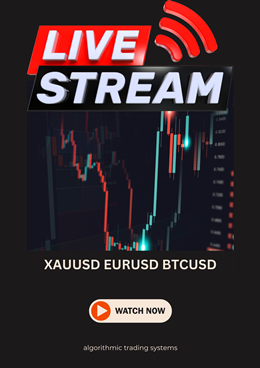You often hear people claim that because the forex market is so large, it is relatively easy for forex traders to jump in and ride the trends in this gigantic market, the world’s largest market. However, most forex traders trade what is called the retail forex market; this is a different market (akin to a parallel universe) to the “real” forex market in which $4 trillion is exchanged each day. In essence, there are two markets in forex. There is the interbank market, where banks, hedge funds, governments, and corporations exchange currencies, and there is the retail market. Most forex traders trade in the retail forex market, an entirely different market to the “real” interbank market.
In the retail forex market, your competition is the other forex traders trading the retail forex market, and, believe it or not, your broker. When you make money trading forex, these other traders in the retail market lose, and so does your broker. Most retail forex traders do not make money. In fact, your forex broker will assume that you are going to lose money in the long run. This is a perfectly reasonable assumption, since the large majority of forex traders lose money.
Would you like to know about the secret that forex brokers don’t want you to know? Here it is: Forex brokers divide all traders into two groups. There are the winners—these are the forex traders who make money—and then there are the losers—these are the forex traders who lose money.
Guess which group all new forex traders get put into? Retail forex brokers believe that all new customers are unlikely to make money, so all new accounts are placed into the loser group. After several months of consistently profitable Forex trading a trader may be placed into the winner group. It may sound surprising, but it is true. If you start making money trading forex over several months, you will join the winners. Your retail forex broker will begin to hedge your trades. In other words, if you are in the winner group, your retail forex broker will take trades in the real forex market, the interbank market, to offset the profits accumulated by the winner group. For example, if most of the traders in the winner group have decided to buy the EUR/USD, then the broker will put in a trade to buy the EUR/USD in the interbank market in the hopes that, if the winners are correct, the forex broker can use the profits in the interbank market to pay the winning traders. This is how your retail forex broker deals with winning traders.
What about losing traders? Since most forex traders are losing traders, your forex broker assumes that you will not make money when you open up an account. Only after you have consistently made money trading forex will your broker become concerned with your trading. Guess what happens to all of those losing trades? Those losing trades fatten your broker’s pocket. All losing trades are “business profits” for your broker. This is because your broker takes the other side of your forex trade. Although it is true that some retail forex brokers match up trade orders so that a trader with a buy trade order is paired up with a trader with a sell trade. However, the overwhelming majority of retail forex brokers do not do this. Unless you are a consistently winning trader, your broker will take the risk on your trades, and assume that your trades will lose money in the long run. This is not something that is widely discussed, but it is true. Your forex broker wants you to lose, because your losses are your broker’s profits.
How would you like to make the jump from the group of losing traders to the group of winning traders? Would you like to join the 5 percent of winning traders? I know you can join the 5 percent, and I will show you precisely how you can leap into the group of winners in later topics.
by Alex Nekritin and Walter Peters

 Events
Events Blog
Blog













